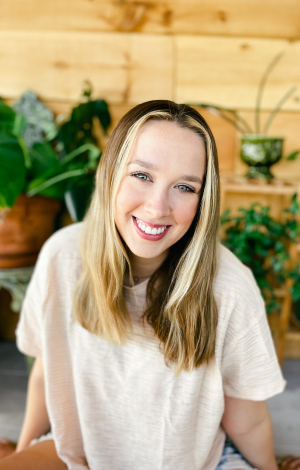I Reject Bitterness
In the adoption community, there are many angry adoptees. Often, this is an adopted child who just expresses a lot of anger and bitterness with no cause. In recent years, many studies have come to find out that adoption leaves adopted children with internal turmoil. This trauma and turmoil can leave some children with the persona of constant anger. It often happens in a house of at least two adoptees, one is the angry one, and one is the compliant one. I grew up being a compliant adoptee.
When I started to have biological children, a lot of my own personal adoption trauma began to stir up in me. These feelings prompted me to do my own research, explore talk therapy, and ultimately led me to podcasts. There is a vast library of podcasts from all perspectives of the adoption triad available to us for free. One of the first podcasts I came across was one hosted by an adoptee where they only interviewed other adoptees. This was so interesting for me to hear other people with similar life experiences. However, there was a common theme among the hosts and guests—bitterness. All of these adoptees felt so angry all the time. And although I had a degree of bitterness in me about my adoption, I wasn’t nearly as hostile as these people were. I listened to this podcast for 3 years and then promptly stopped when I realized that anger and bitterness was not the answer for me.
I have been through my own phases of adoption anger in my life. I remember the first angry phase was when I was 13 years old. For me, my anger didn’t manifest in disrespect, throwing things, and tantrums. It presented itself in sadness, depression, and a tendency to isolate myself. I was overcome with the emotions and thoughts such as, “Why wasn’t I good enough?” and “What could be so wrong with me as a baby that they didn’t want me?” Of course, all of these questions were ridiculous and irrelevant to my situation. But the truth is, I didn’t even know my own situation. I wasn’t told I was adopted until I was 8 years old. And even when I found out, my parents had very little to say about it. It wasn’t until I connected with my maternal biological side at the age of 23 that my questions about my situation would be answered. That is when bitterness fully left.
There are still parts of my story that would be valid for me to be bitter at. But I have decided to reject any and all bitterness that walks through my door. Is the fact that I couldn’t be raised by my biological family a tragedy? Yes, absolutely. Is the fact that my birth dad couldn’t overcome his addiction and be a father terrible? Of course! These are valid life events that many people would dwell on and become depressed over. But it is my opinion that bitterness is an infectious disease that ruins lives. If I spend my entire life being bitter over something I had no control over, what kind of a life is that? That is what I saw in the hosts and guests of one of the first adoption podcasts I came across. It was full of people who couldn’t appreciate the blessings in their life and chose to dwell solely on the bad things. The reality is, everyone will face hardships and traumas. It is how we choose to respond to those hardships that makes all the difference.
I remember one of my biggest seasons of sadness and anger was shortly after my first child was born. My mind, at the tender age of 20, simply could not process the concept of a woman giving her baby over to complete strangers. And, at the time, that is what I believed had happened to me. I’m sure the mix of surging hormones, breastfeeding, and serious sleep deprivation did not help the anxiety, depression, and anger I was struggling with. But I had an added layer, being an adoptee. Meeting my first biological relative at the same moment as the first time I gave birth was a double whammy of emotions. It was certainly not something I could have ever prepare for. I successfully came out of that depression after a while with a wave of podcasts, books, and adoptee-centered information and support. And with the birth of my second son two and a half years later, I didn’t have the same dark experience.
I think that a lot of these experiences could have been avoided for me if I had been able to have more of an open adoption. That was not something my parents were willing or interested in doing. My adoption was open in the sense that my adoptive and biological families met on several occasions. There were many pictures, letters, and visits exchanged over the first 6 months of my life. But after that, it all came to an abrupt stop when my adoptive family realized it was too much for them. In my opinion, that was the wrong thing to do. I know not all adoptions can be open in the sense that you have communication and visits, but all adoption conversations can and should be discussed openly within the family. There is no excuse for holding a child’s history hostage from them.
Despite all of these things, and all the turmoil I have faced in being an adoptee, I reject bitterness. I simply do not have time for it nor will I allow it into my life. Tragic things happened to me, my family was torn apart, but I can’t dwell on that. I was removed from my birth family, yes, but if I hadn’t been, my children wouldn’t be here today. I wouldn’t have met my husband, we wouldn’t have joined our church, built our house, and most importantly, had our kids. All the members of my triad can agree that for all the hardships, the grandkids are worth it!
I used to imagine what my life would have been if I had been raised in my birth family. Or even if I had been raised by one of the many other adoptive families who tried to get my birth mother to choose them. And yes it is very heart-breaking to me that I didn’t grow up with my half brothers. But now I can’t even imagine it if I want to! How can I imagine my children away? Or my husband? They are my life’s biggest blessings. Bitterness will eat you away, but, in my experience, joy and positive thinking will build you up and only enhance the quality of your life. Adoption is trauma, but it can also be a blessing. All adoption is born out of loss. One family loses a child, so another can gain a child. We have to be able to hold the joy and sorrow that adoption is by nature.

